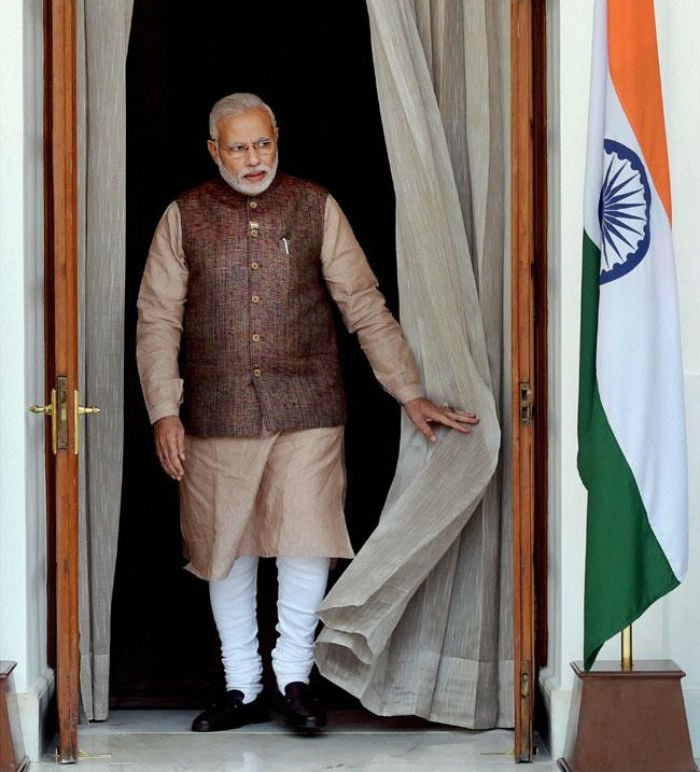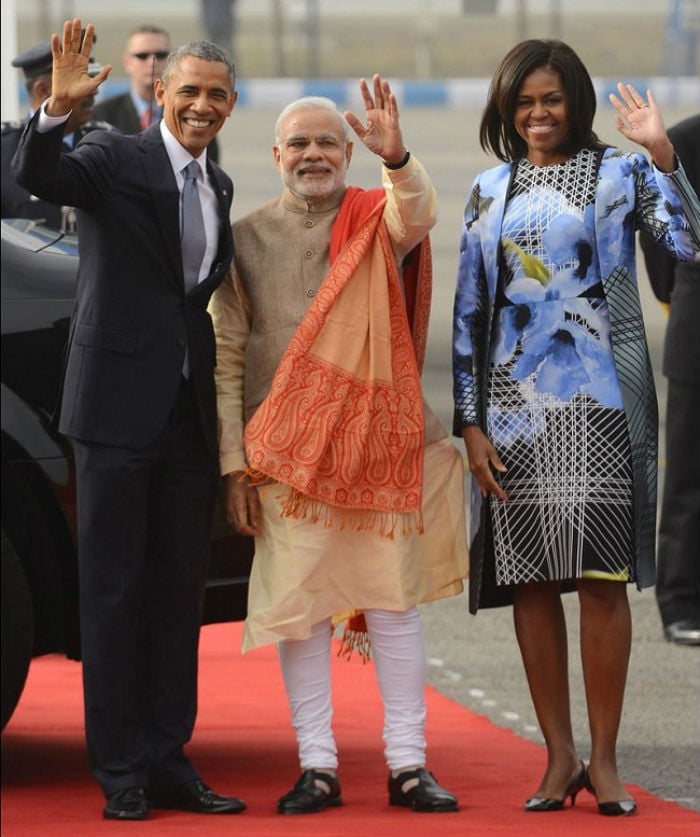Indian PM Narendra Modi spotted in Pakistan’s national dress
Indian Prime Minister Narendra Modi has become a global style icon
February 05, 2018
Indian Prime Minister Narendra Modi has become a global style icon by placing considerable attention to his wardrobe and experimenting with different types of clothes and fabrics.
However, Modi, who is often spotted in a kurta pajama, took a leap from his everyday fashion and donned Pakistan’s national dress; shalwar kameez.
He can be seen wearing a shalwar kameez coupled with a sweater and shawl upon his arrival to New Delhi after attending the World Economic Forum in Davos.
Previously, the Indian premier donned a shalwar kameez was upon his arrival to Manila to attend ASEAN and East Asian summits.
However, this is what the Indian prime minister looks like the majority of the times:


Shalwar Kameez is believed to have originated from the costumes of the Mughals, writes Arabinda Biswas in Indian Costumes (1985).
Interestingly, the dress which is commonplace for most men in Pakistan is not as common in its neighbouring country, according to an Indian journalist.
The dress is called 'Pathani Suit' in India because of its association with the Pathans.
Tracing the history of the dress, Pran Neville, who wrote Lahore: A Sentimental Journey (1992), shared that Hindu, Muslim and Sikh men used to wear shalwar kameez in pre-Partition west Punjab, but they also wore other dresses such as shirts and trousers.
The Pathans, however, wore only and only the shalwar kameez. That's why the dress came to be identified with Pathans especially in north India, Neville adds.
However, Vanit Nalwa in her book Hari Singh Nalwa-champion of the Khalsa (2009) states that the Pathans started to wear shalwar kameez to escape persecution at the hands of Sikh army general was Hari Singh Nalwa (1791-1837).
During the time, shalwar kameez was commonly worn by members of Sikh community. The Pathan thought that the best way to escape the wrath of Nalwa was to don the Punjabi dress i.e. Shalwar kameez and escape from the clutches of the Sikhs and Nalwa. However, the dress was eventually adopted by the Pathans became to be known as the ‘Pathani suite’.









